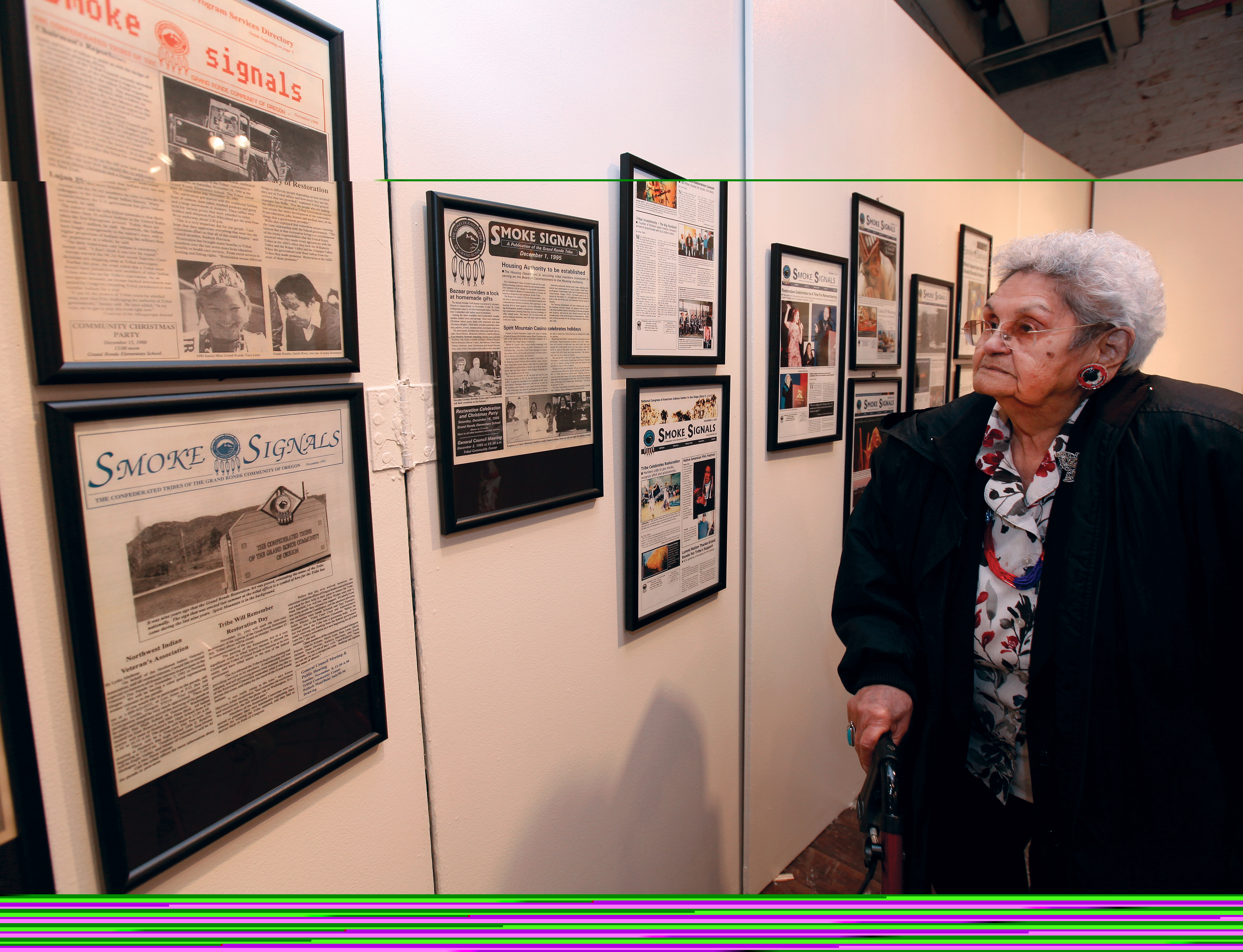Tribal Government & News
Yesteryears -- May 1, 2023

2018 – After a year of competition with the only other Tribal casino in the Portland-Vancouver gaming market, Ilani, the Grand Ronde Tribe’s landmark Spirit Mountain Casino continued to exceed revenue expectations. Original estimates of what the competition would do to Spirit Mountain Casino revenue and the dividend sent to the Grand Ronde Tribe for governmental operations and important programs such as Elders’ pensions, educational funding and health care were, at times, dire. Although gaming revenue was originally projected to decrease by 38.8 percent per year, it only ended up being 18.8 percent.
2013 – The Tribe mounted a new exhibit at the Willamette Heritage Center at the The Mill in Salem. “We Were Here First … and We Are Here to Stay: Assimilation, Termination and Restoration of the Confederated Tribes of Grand Ronde Community of Oregon” took visitors through the 1850s Treaty Era to the Termination Era of the 1950s to the Tribe’s preparation for its 30th anniversary of being restored. “We were told a long time ago that you’re going to have to tell your history over and over again,” Tribal Elder Kathryn Harrison said. The exhibit was curated by Land and Culture Department Exhibits and Archives Program staff members David Lewis, Julie Brown and Veronica Montano.
2008 – The Oregon Fish and Wildlife Commission approved a rule change that returned big-game hunting rights for cultural ceremonies to Confederated Tribes of Grand Ronde members. The Tribe had been working to regain the rights after losing them. “A great day … a historic day,” said Tribal Council Vice Chair Reyn Leno. “I wish every Tribal member knew what was going on here today.” The new ceremonial game hunting rights applied in the Trask Wildlife Management Unit where Tribal members had hunted since time immemorial and during state-sanctioned hunting seasons since Restoration.
2003 – New Spirit Mountain Casino Chief Executive Officer Douglas Pattison brought a range of gaming experience with him when he was hired to the casino’s top job. “His talents are what we are looking for,” Tribal Council Chairwoman Cheryle A. Kennedy said. Pattison had most recently served as chief executive officer of the Silver Star Hotel and Casino owned by the Mississippi Band of Choctaw Indians, and had also worked at casinos in Atlantic City and Memphis.
1998 – Language specialist Tony Johnson was featured for his development of a Chinuk Wawa archive of written and audio materials. He was pursuing a master’s degree in linguistics at the University of Oregon when he was recruited as a language specialist by the Grand Ronde Culture Board. He decided that establishment of a language program archive was an essential first step.
1993 – The Confederated Tribes of Grand Ronde announced its intent to open a gaming facility on Tribal land. Tribal officials contacted Oregon Gov. Barbara Roberts, requesting that a contract be drawn up between it and the state of Oregon, as required by the Indian Gaming Regulatory Act of 1988. “We are very concerned about sustaining financial support for our programs,” Tribal Council Chairman Mark Mercier said. “Opening a facility that taps Oregon’s growing tourism industry makes us less susceptible to the uncertain future of the timber industry and anticipated budget cuts.”
1988 – Smoke Signals honored its first Tribal veteran in the newspaper, selecting Tribal Council member Russ Leno, who joined the Air Force at the age of 18 and served a two-year tour of duty in Japan from 1945-47. He was an eyewitness to the devastation caused by the dropping of atomic bombs on the cities of Hiroshima and Nagasaki. “I rode a train right down the middle of the whole thing,” he said. “I took a bunch of pictures, but they wouldn’t let you keep them. All my bothers had served, so it was natural for me to go.”
Yesteryears is a look back at Tribal history in five-year increments through the pages of Smoke Signals.
